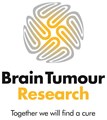Story
Their location makes brain tumours hard to detect, particularly early in their growth, and obviously hard to treat. And there is no cure, even if the tumour is removed as far as is possible. For some even that is not possible - removal would do too much damage - and they often live with highly debilitating symptoms. They are the people for whom a cure that avoids physical intervention is really important. .
Depending on how you look at it I am lucky. Mine was found as the side effect of another investigation. It has no effects on me - yet. And it can be removed. (You can see a picture of it in my photo gallery above.) So, whilst I'm in that fortunate state I'm doing the 25km London Bridges Trek to raise a few pounds towards finding a cure one day.
https://www.ultrachallenge.com/thames-bridges-trek/associate-partners/
https://braintumourresearch.org
One in three people in the UK knows someone affected by a brain tumour. Brain tumours kill more children and adults under the age of 40 than any other cancer, yet just 1% of the national spend on cancer research has been allocated to this devastating disease since records began in 2002.
Brain Tumour Research is determined to change this. It is the only national charity focused on finding a cure for all types of brain tumours. Help fund the fight. Together we will find a cure.
